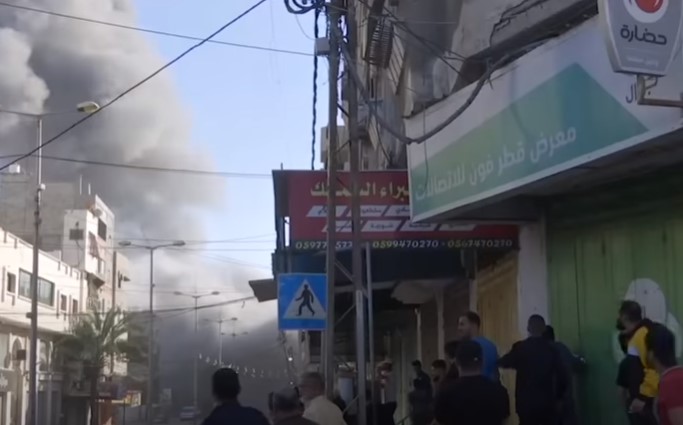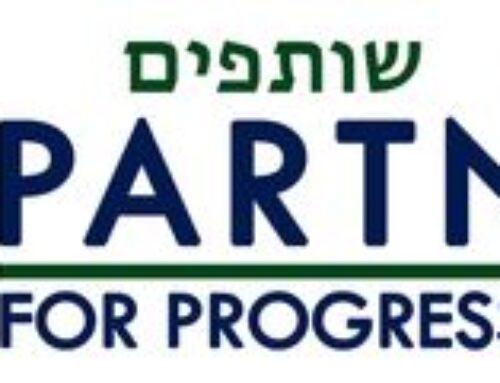Another Week, Another War: A Bleak Appraisal
If you missed last week’s “war” between Palestinian Islamic Jihad (PIJ) and Israel, don’t worry; you’re not out of touch. It lasted less than 5 days and killed “only” 35 people (33 in Gaza; 2 in Israel, one of whom was a Gazan Palestinian). The usual Egyptian-brokered cease-fire settled nothing but did stop the fighting for now. Nobody deludes themselves into thinking the truce will last long, since it is somewhere between the 11th and 17th such war since 2006 (even discounting the more minor skirmishes). Israel and Hamas (the latter skillfully avoiding both fighting and losses) have been adjudged the winners, and PIJ, which lost 4 top commanders, was the loser. This is what Israelis used to call ‘mowing the grass’; the expression has largely fallen out of use but not the practice.
Why did it happen? There are various theories; all have at least a grain of truth. Israel said it was reacting to rocket fire from Gaza the previous week, when there had been anger there over the death of a PIJ leader in Israeli custody in the 87th day of his hunger strike. Israel, PIJ, and Hamas all have policies stipulating the importance of retaliation, lest neither their friends nor their enemies think they have gone soft. Many opine that Itamar Ben-Gvir, the high-profile far-right demagogue who is now Israel’s “Minister of National Security” (a title previously unknown), pressured PM Netanyahu for a stronger response to last week’s rocket firings. Others think that the impetus came from Bibi himself, who sought to pre-empt such complaints. Or, it might have been Bibi’s attempt to “busy giddy minds with foreign quarrels” (Henry IV, Pt. 2); an attempt to arrest his own and his government’s precipitous decline in the polls, an effort that seems to have borne fruit, at least for the time being. Or, the purpose might have been Israel’s attempt was to strengthen the position of Hamas, which is, of course, Israel’s mortal enemy, but one that generally keeps the situation quiet and that doesn’t appreciate provocation from PIJ, its rival for the support of the more militant Gazans as well as for Iranian cash. Iran is itself strapped for money, but can always spare some change to help keep Gaza on fire.
The violence was another blow to the Abraham accords, the 2020 scheme for Israel to make peace with the Arab world while bypassing the Palestinians. Bibi came into office last December promising that Saudi Arabia, the biggest prize of all, would soon join the AA. With the continuous unrest among Israelis and seemingly nightly raids in the West Bank as well as geopolitical shifts, that promise is unlikely to be fulfilled any time soon. Arab leaders may have long since forgotten the Palestinians but their populations haven’t, and videos of Israeli planes bombing Gaza make ordinary Arabs angry and their leaders edgy and disinclined to develop warmer relations with Israel.
Nothing has been changed by this mini-war except in the lives of the civilians and PIJ members killed – and their families – and the 137 wounded. The current general unwillingness by all parties to deal with the larger issues, first and foremost the occupation, in a fundamental way, ensures that this cycle of rockets, bombing, and killing will repeat itself for the indefinite and unforeseeable future.
I should note two other atrocities, one at the very heart of the conflict. I write this on May 15, 2023, the date that commemorates the Nakba of 1948. “Nakba” as most know by now, is the Arabic word for “catastrophe; it has become the expression used to denote the flight and expulsion of around 700,000 Palestinians as part of the war around the establishment of the Israeli state. Those who critically support Israel, as I do, have to take continuing notice of Palestinian suffering for the last 80 years and continuing today. The State of Israel must recognize that it cannot and never will be free and safe until it gives up the occupation.
I also note the brutal demolition last week of the elementary school of Jubbet ad-Dhib on the outskirts of Bethlehem. This is part of the longstanding occupation practice of almost never approving Palestinian building permit applications and then demolishing anything Palestinians dare to build. It is also reminiscent of another practice in East Jerusalem that was the focus of Partners’ “Stop the Evictions “campaign; evicting Palestinians from homes they have lived in for decades under the claim that it was “Jewish land” before 1948. Partners will continue to fight against evictions and other brutalities of the occupation. These continuing practices explain why Palestinians claim that the Nakba is still ongoing.
We’re grateful for the contributions of our supporters, which keep Partners going and enable us to maintain American contact with and awareness of those Israelis and Palestinians who continue struggling to bring an end to the cycle of hate, violence, and despair. Your help is invaluable and we hope it continues. Donate now.

Paul Scham
President, Partners for Progressive Israel







Leave A Comment